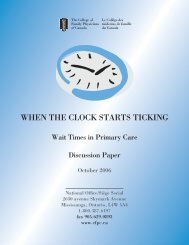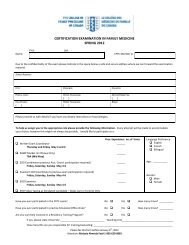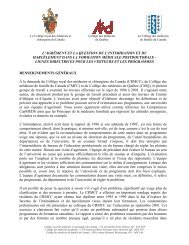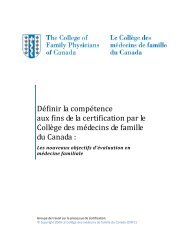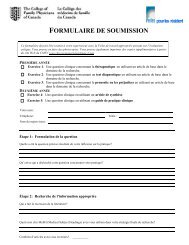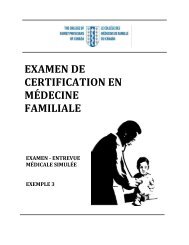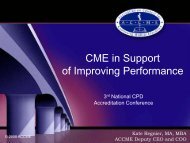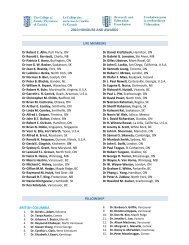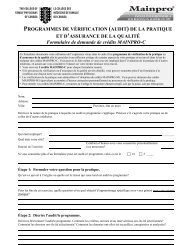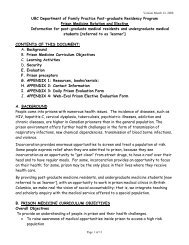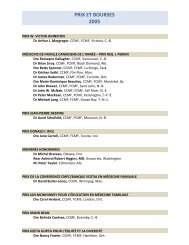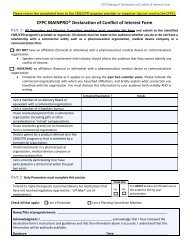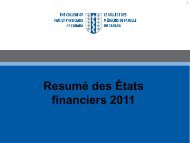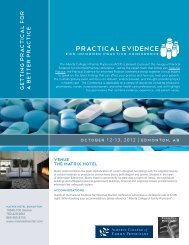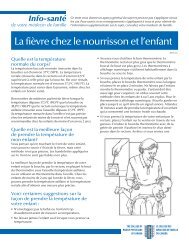The Red Book - The College of Family Physicians Canada
The Red Book - The College of Family Physicians Canada
The Red Book - The College of Family Physicians Canada
- No tags were found...
You also want an ePaper? Increase the reach of your titles
YUMPU automatically turns print PDFs into web optimized ePapers that Google loves.
5. Assessment processes are more effective when based on individual resident learning plans orcontracts. Programs should develop and regularly review a written plan with each residentthat addresses both the educational objectives <strong>of</strong> the training program and the specificlearning needs and goals <strong>of</strong> each resident.6. <strong>The</strong> assessment system should permit very early identification (ie, well before anysummative assessment) or self-identification <strong>of</strong> residents who are not progressing asexpected. <strong>The</strong>ir training, supervision, and assessment should be modified appropriately andthey should be considered separately until the difficulties are resolved.7. Residents must be informed when serious concerns exist and must be given an opportunityto correct their performance.Specific Considerations1. Assessment must place emphasis on situations and patients with problems that correspondto the range and variety <strong>of</strong> family medicine practice. It must also concentrate on thecompetencies most important to family medicine as described by the Evaluation Objectivesand CanMEDS-FM.2. Methods <strong>of</strong> assessment and documentation:a) <strong>The</strong> principal instrument for assessment should be the preceptor-resident unit. Thisunit should assess a single patient interaction or other clinical or para-clinical situationand document the assessment appropriately. Direct observation is a fundamental tool;however, case discussion and record review are also important for clinical assessments.Assessment <strong>of</strong> non-clinical activities is important and requires other methods <strong>of</strong>documentation.b) Other performance assessments <strong>of</strong> various kinds should also be used whereappropriate, and must be added for residents deemed to be “not progressing asexpected.”c) Field notes and daily assessments:(i) Programs should use field notes (or equivalent) to gather qualitative comments onresident performance during daily clinical practice and should integrate them intotheir regular teaching and supervision. <strong>The</strong>y should generate a sufficient number24



